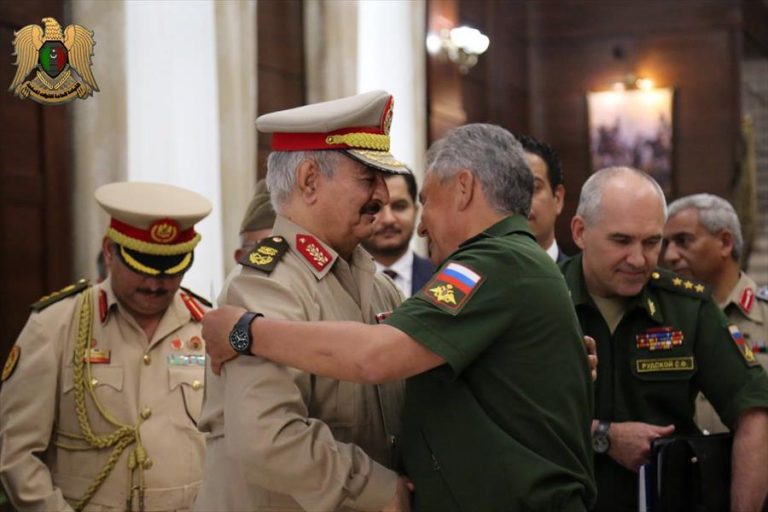Russia has flown MIG 29 and SU 35 fighters, as well as SU 24 bombers, part of its Aerospace Forces (VKS), to Libya. Twitter.
The transfer came as the Russian mercenaries were defeated near Bani Walid, a town 93 miles southeast of Tripoli.
Bani Walid mayor says 1,500-1,600 mercenaries were evacuated by several planes from a local airfield to tactical bases in Syria after the May 26 clashes, when the Russians suffered casualties. Meanwhile, a dead body of Russian Wagner mercenary was found in Tripoli. A video broadcast on the Tripoli-based Libya al-Ahrar television channel showed armed men boarding an Antonov 23-type military cargo plane. A Russian-made Pantsir air defense missile system could be seen in the background.
The deployment of Russian military aircraft in Libya is most likely related to Turkey’s dominance in Libyan airspace and the inefficiency of Russia’s air defense system, that has recently lost several Pantsir air defense missile systems.
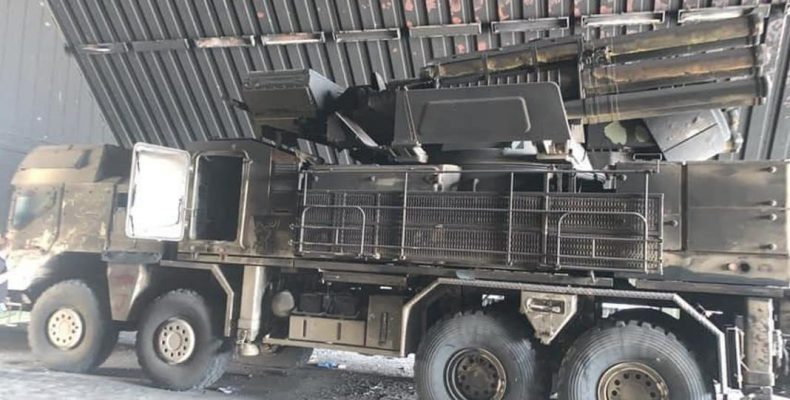
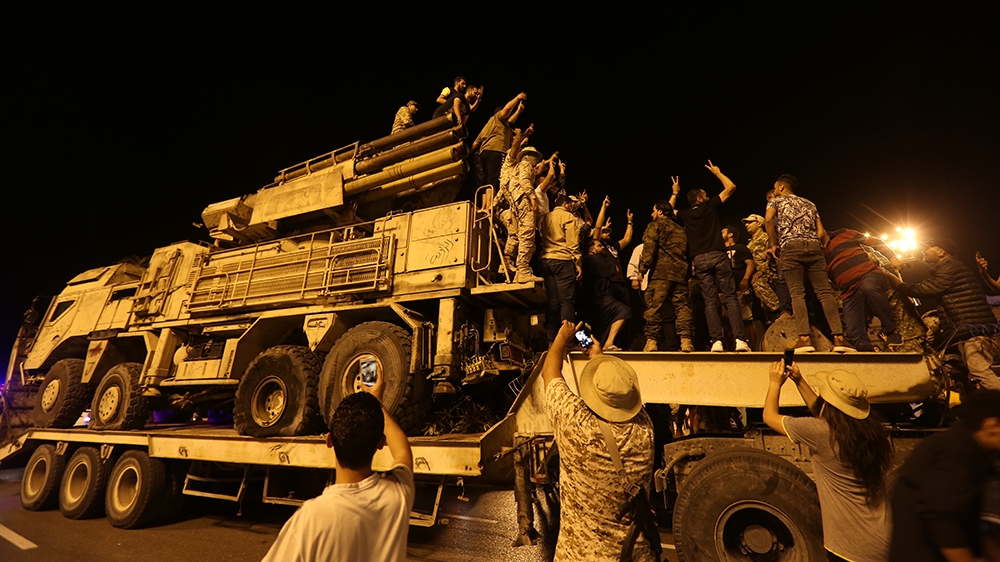
The activity of Turkish aircraft, including strike drones, has allowed UN-recognized GNA forces to slow down the LNA operation to capture Tripoli. Thus, the Russian air force will soon launch an operation to suppress the Turkish Air Force. The Russian aircraft projection should possibly replace ground operations involving Wagner mercenaries and Russia’s Special Operations Forces (facilitated by Russian mercenaries while staging operations in the most dangerous areas) with air component missions similar to Russia’s Syrian campaign.
After departing the RF territory, MIG 29 and SU 24 aircraft stopped over in Syria and were repainted to conceal its Russian origin before heading over to Libya, AFRICOM said.The command predicts the Russian militaries are set to place MIG 29, SU 35 and SU 24 aircraft under the control of the Libyan National Army (LNA) commanded by Moscow-backed Field Marshal Khalifa Haftar. The aircraft is meant to be used against the Government of National Accord’s forces.
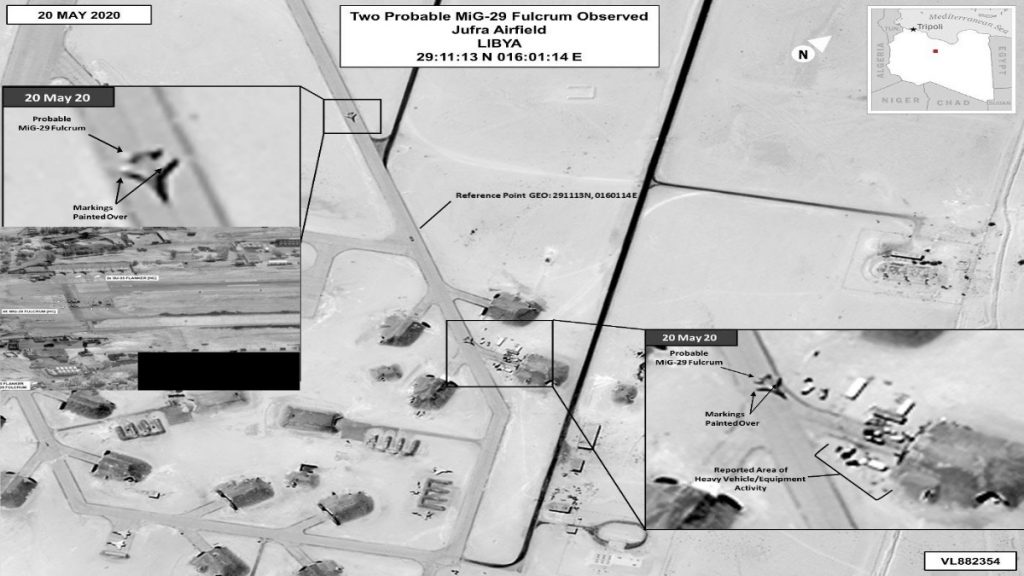
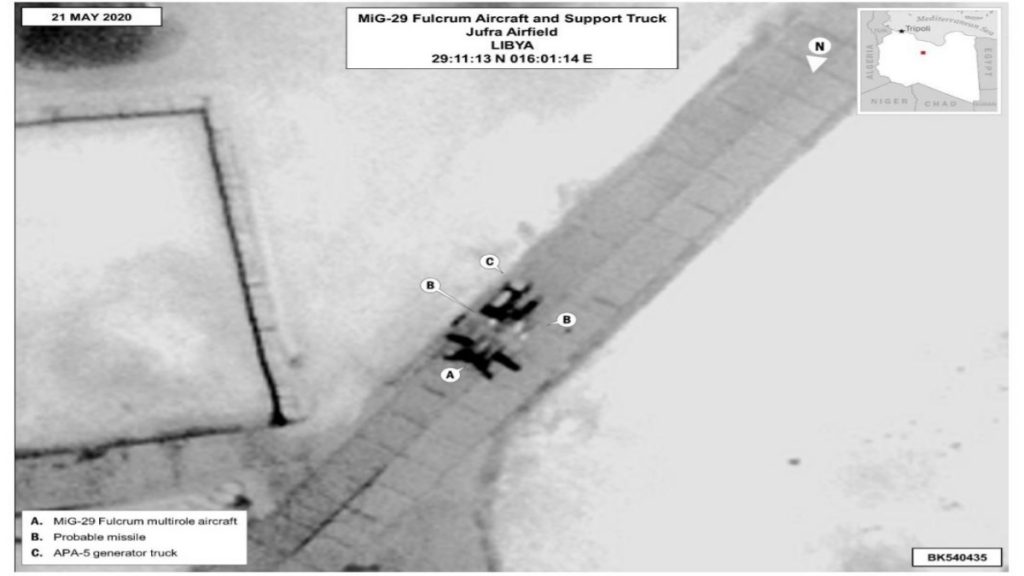
Neither the LNA nor private military contractors would be able to use and maintain such combat vehicles on their own, unsupported by Russian military personnel, General Stephen Townsend, commander, U.S. Africa Command said.
The practice to deploy regular Russian military hardware to paramilitaries figuratively was widely used by Russia in eastern Ukraine. However, the case studies reveal that all high-tech equipment (AD Weapon System, EW systems) was operationally controlled by Russia’s Armed Forces. Thus, the JIT believes the Buk missile system that shot down the Malaysian Airlines MH-17 flight, was operated by soldiers of the 53rd Anti-Aircraft Missile Brigade of the Russian Ground Forces. Sophisticated EW systems operating in eastern Ukraine belong to the RF Armed Forces in similar ways, the OSINT community Informnapalm claims.
It is highly probable that the jet fighters, especially the SU 35, would be flown by the Russian Armed Forces’ pilots, legendized as Russia’s private military contractors or LNA mercenaries. In the same way, Soviet Air Force soldiers pretended to be Korean pilots carrying on missions in the Korean War in Soviet times.
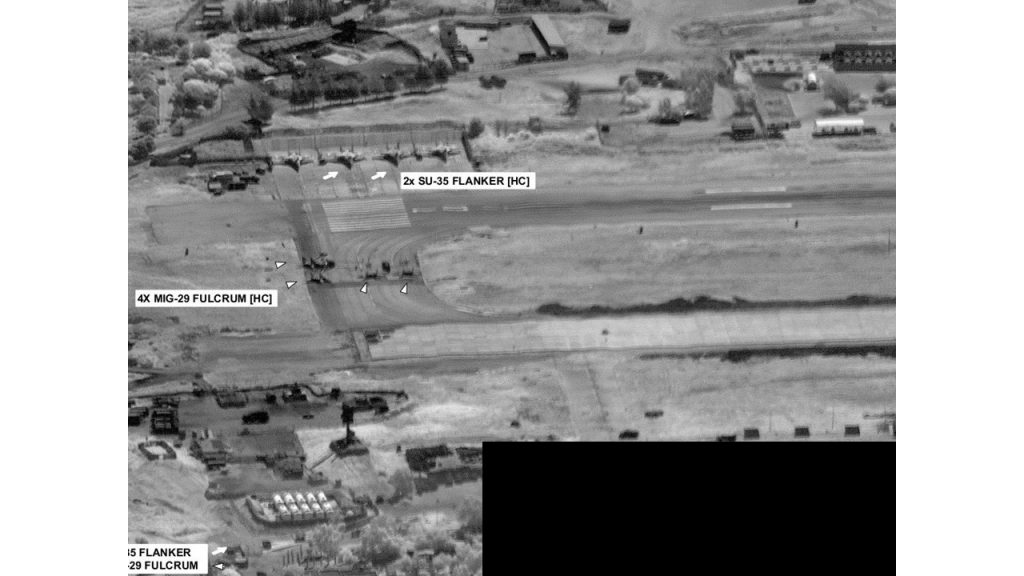
The SU 35 is a relatively new type of military aircraft, not exported to Libya, consequently there cannot be any pilots to fly such jet fighters there. Hence, we may conclude that these jet fighters would be piloted by the soldiers of the Russian Air Forces, it might happen that by those who took part in Syrian campaign.
On May 21, the LNA threatened to carry out the largest aerial campaign in the near future possibly using the Russian aircraft. As LNA’s Air Force Commander Saqr al-Jaroushi promised, “the next few hours will be painful” for Turkish President Recep Tayyip Erdogan.
The Russian Air Force campaign in Libya will undoubtedly trigger a significant increase in civilian casualties and risks to civilian infrastructure. Thus, Russia’s campaign could be seen, inter alia, as a provocation to intensify the migration crisis in Europe using a scenario similar to the Syrian migration crisis that put the E.U. institutions’ work at risk.
Recep Tayyip Erdogan has earlier accused Russia’s military echelon, including Russian Defense Minister Sergei Shoigu, of waging a mercenary war in Libya.
The Russians’ stepping up in Libya could force Ankara to reconsider its policy of cooperation with Russia and revive deep cooperation within NATO.
Turkey’s interests regionally come across the Kremlin’s ones, making cooperation ineffective and risky to escalate the conflict.Russia consistently seeks to showcase its advantage over Ankara. It makes itself felt by the pointed compulsion to wait for President Erdogan before his meeting with Putin in Moscow and the demonstration of a commander’s portrait, who is a symbol, in Russia, of Turkey’s defeat in XVIII century wars, at bilateral meetings with Turkish delegations. As a result, constant Turkey’s humiliation by Russia might be expected to find an appropriate response in Ankara.




